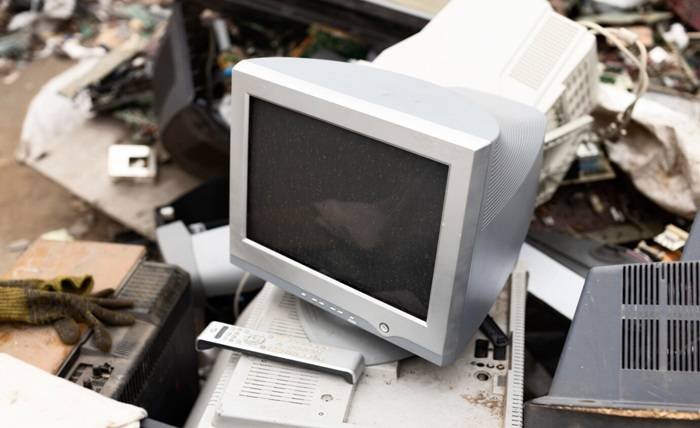
The Corporate Downsides of Neglecting Electronic Recycling
In the modern business landscape, companies—regardless of industry—use an array of electronic devices to remain competitive. From computers and servers to mobile phones and specialized equipment, electronics have become the backbone of day-to-day operations. However, many organizations are slow to address a significant and growing challenge: what to do with outdated or no-longer-functional devices. Failing to recycle old electronics may seem inconsequential in the short term, but it can have lasting negative effects on any corporation. Below, we explore the potential downsides in detail.
Environmental and Public Image Concerns
One of the most widely discussed repercussions of neglecting electronic recycling is the environmental harm caused by toxic materials. Many electronic devices contain hazardous substances such as lead, mercury, and arsenic, which can leach into the soil and groundwater if they end up in landfills. Not only does this create long-term ecological damage, but it also exposes companies to potential public backlash.
In an era where consumers, clients, and partners increasingly value eco-responsibility, a firm’s disregard for proper e-waste disposal may be perceived as a serious oversight. Negative press about environmental negligence can tarnish a company’s brand, making it appear irresponsible or disconnected from contemporary sustainability concerns. Even if the damage is indirect—like using a third-party vendor that dumps electronics—the reputational risk is hard to shake once exposed.
Lost Data Security
Old devices often contain sensitive corporate information—client data, proprietary documents, or internal communications. When these devices are simply discarded or stored without proper decommissioning, the data they contain can still be accessed by unauthorized individuals. A discarded computer hard drive, for instance, can offer a treasure trove of information to anyone with basic data recovery tools.
Potentially, this leads to data breaches that not only threaten business operations but can also jeopardize consumer trust and invite legal actions. By skipping official recycling routes that include data destruction or sanitization, companies put themselves at risk of substantial liability. The aftermath could involve regulatory fines, lawsuits, and the irrevocable loss of stakeholder confidence.
Wasted Storage Space and Operational Inefficiencies
When outdated devices pile up in closets or storerooms, they quickly become a source of disorganization. Employees trying to store or locate other items may have to navigate through piles of unused electronics. Over time, this clutter grows as businesses replace equipment but fail to dispose of the old units.
Beyond just aesthetics, the accumulation of outdated gear can hamper workflow and create bottlenecks. For small to medium-sized businesses, the lack of space is especially critical. Freeing up valuable storage by responsibly recycling electronics allows companies to maintain a more organized work environment, improving operational efficiency and reducing potential accidents or confusion over which devices are still in use.
Non-Compliance with Regulations
Many regions and countries have stringent regulations surrounding the disposal of electronic waste. Failing to comply with these regulations can lead to significant financial penalties. Even if an organization is not aware of specific rules in its locality, ignorance does not exempt it from legal obligations.
Moreover, regulation enforcement is steadily increasing, placing companies under closer scrutiny. There have been high-profile cases of organizations facing stiff fines and damaging media coverage for negligent disposal practices. Along with financial repercussions, non-compliance can severely compromise a corporation’s relationships with partners, investors, and customers who are keen on ensuring ethical and legal operations across the supply chain.
Damage to Corporate Social Responsibility Initiatives
Many businesses outline Corporate Social Responsibility (CSR) strategies to communicate their values and demonstrate a commitment to ethical practices. However, a lax approach to e-waste management runs counter to the sustainability principles often embedded in CSR policies. When stakeholders discover that a company’s environmental efforts are not comprehensive—particularly with regard to electronics—they may question the authenticity or depth of these initiatives.
Potential investors and clients are increasingly scrutinizing CSR promises, looking for tangible proof of action. A failure to recycle electronics responsibly not only undermines existing CSR efforts but can also hinder future collaborations with entities seeking to partner with environmentally and socially conscious businesses.
Missed Opportunity for Innovation
Another understated downside of ignoring electronic recycling is the missed opportunity for innovation within the organization. Companies that actively engage in sustainable practices, including recycling, often cultivate an internal culture of resourcefulness and ecological awareness. This mindset can inspire employees to look for other areas to optimize, leading to new products, services, or processes that benefit both the bottom line and the planet.
On the other hand, a company that lags in sustainability efforts can stifle its own capacity for groundbreaking solutions, as employees may feel their creative ideas related to waste reduction or material recovery have no support from upper management. Failing to embrace recycling at the corporate level sends a message that environmental issues are not a priority—a sentiment that can dampen innovative thinking.
Conclusion
Not recycling electronics may appear to save time and money in the immediate term, but the long-term drawbacks far outweigh any short-lived benefits. Issues ranging from environmental harm and reputational damage to data security risks and missed opportunities for innovation underscore the severity of neglecting e-waste obligations. By establishing robust policies for electronics recycling, companies can protect their brand image, ensure data security, and remain compliant with regulations while also discovering potential cost savings and new areas for growth.
In short, electronic recycling is not just a moral or environmental imperative—it is a strategic move that can safeguard and even enhance a corporation’s operational health and standing in the market. By recognizing the far-reaching consequences of inaction, businesses can forge a future that balances profitability with responsibility.




